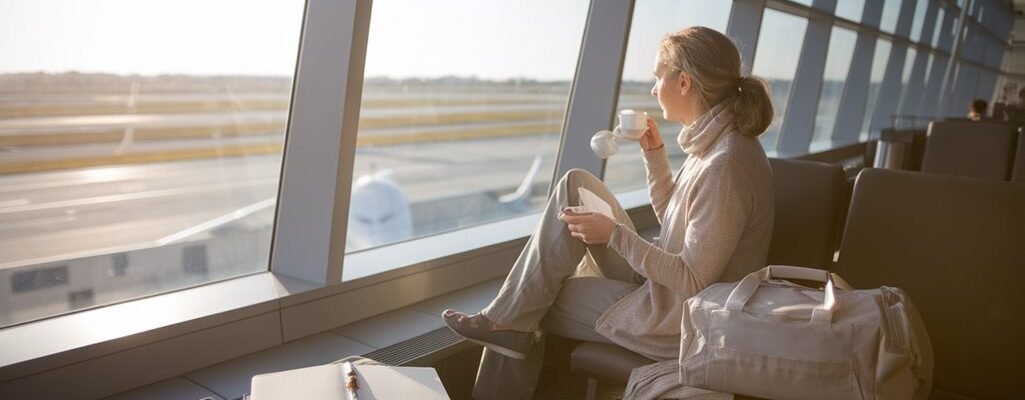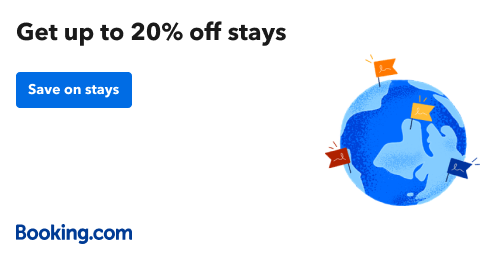
Overcoming Travel Anxiety: Strategies for a Stress-Free Trip
If travel makes you uneasy, you’re not alone—and you don’t have to let anxiety control your trip. By understanding what triggers your stress and taking steps to prepare, you can regain a sense of control and even find enjoyment in the journey. Simple techniques and thoughtful planning can make a big difference, but there’s more to consider if you want to truly ease your mind before and during your travels.
Understanding the Root Causes of Travel Anxiety
Although travel can be exciting, many people experience anxiety because they fear the unknown or worry about disruptions. You might feel uneasy about unfamiliar places, language barriers, or getting lost.
Concerns about flight delays, missed connections, or lost luggage can also weigh on your mind. Sometimes, past negative experiences or a general fear of change trigger your anxiety.
You may also struggle with a lack of control over your environment, which makes uncertainty harder to handle. Physical discomfort, like motion sickness or sleep disruptions, can add to your stress.
Recognizing these root causes helps you face your fears directly instead of letting them build up. Understanding why you feel anxious is the first step toward managing your travel anxiety effectively.
Preparing Thoroughly to Build Confidence
When you prepare thoroughly, you gain the confidence needed to face travel anxiety head-on.
Start by researching your destination—know the local customs, transportation options, and emergency contacts. Creating a detailed itinerary helps you anticipate each step, reducing uncertainty.
Pack smartly, including essentials like medications and comfort items, to avoid last-minute stress. Check your documents, tickets, and accommodations well in advance to prevent surprises.
Familiarize yourself with the airport layout or transit routes, so you feel more in control. Preparing a checklist ensures you don’t forget important tasks.
Mindfulness and Breathing Techniques for Calming Nerves
Anxiety often tightens your chest and quickens your breath, but you can counter these effects with simple mindfulness and breathing techniques.
Start by focusing on your breath—inhale deeply through your nose for a count of four, hold for four, then exhale slowly through your mouth for six. This slows your heart rate and calms your nervous system.
Pair this with mindfulness by paying attention to your surroundings without judgment. Notice the sounds, smells, or the feeling of your feet on the ground.
When anxious thoughts arise, gently bring your focus back to your breath and the present moment.
Practicing these techniques before and during your trip helps you stay grounded, reduces tension, and makes traveling feel more manageable.
Creating a Flexible Itinerary to Reduce Stress
Mindfulness and breathing exercises can ground you in the moment, but having a flexible itinerary gives you control over your travel experience. Instead of scheduling every minute, plan key activities while leaving gaps for spontaneous choices or rest. This way, you avoid feeling rushed or overwhelmed.
Prioritize must-see sights but allow yourself to skip or reschedule them if needed. Build in buffer time between destinations to handle unexpected delays without stress. Embrace changes as part of the adventure rather than disruptions.
When you stay adaptable, you reduce pressure and open yourself to new experiences. A flexible itinerary empowers you to enjoy your trip at your own pace, helping to keep anxiety at bay and making your travel more enjoyable overall.
Utilizing Technology to Stay Organized and Informed
Although travel plans can change unexpectedly, you can stay organized and informed by harnessing technology. Use travel apps to keep all your bookings, itineraries, and important documents in one place.
Set alerts for flight changes, gate updates, or weather conditions to avoid surprises. Digital maps and translation apps help you navigate unfamiliar places confidently, reducing anxiety about getting lost or misunderstood.
You can also use budgeting apps to track expenses and avoid financial stress. Sync your calendar with travel details to get timely reminders, so you won’t miss anything important.
Seeking Support From Travel Companions and Professionals
While technology can keep you organized and informed, the emotional support you get from travel companions and professionals plays a big role in managing travel stress.
Don’t hesitate to share your concerns with your travel companions—they can offer reassurance, help with logistics, and provide distractions when anxiety spikes. Choose companions who are understanding and patient, making it easier to communicate your needs.
If you’re traveling alone or need extra help, consider reaching out to professionals like travel counselors or therapists who specialize in anxiety. They can equip you with coping techniques tailored to travel situations.
Incorporating Self-Care Practices During Your Trip
Since travel can disrupt your usual routines, incorporating self-care practices helps maintain your mental and physical well-being throughout the trip.
Prioritize sleep by setting a consistent bedtime, even in new time zones. Stay hydrated and eat balanced meals to keep your energy levels stable.
Take breaks to stretch or walk, especially during long travel days, to reduce tension. Bring familiar items like a favorite book, music, or comfort objects to ease stress.
Practice mindfulness or deep breathing exercises whenever you feel overwhelmed. Don’t hesitate to set boundaries, saying no to activities that exhaust you.
Conclusion
By understanding your travel anxiety and preparing thoroughly, you’ll build the confidence needed for a smoother trip. Use mindfulness and breathing techniques to keep nerves calm, and create a flexible itinerary that lets you embrace spontaneity without stress. Take advantage of travel apps to stay organized, and don’t hesitate to lean on companions or professionals for support. With these strategies and self-care practices, you’ll transform your travel experience into a more enjoyable, stress-free adventure.




